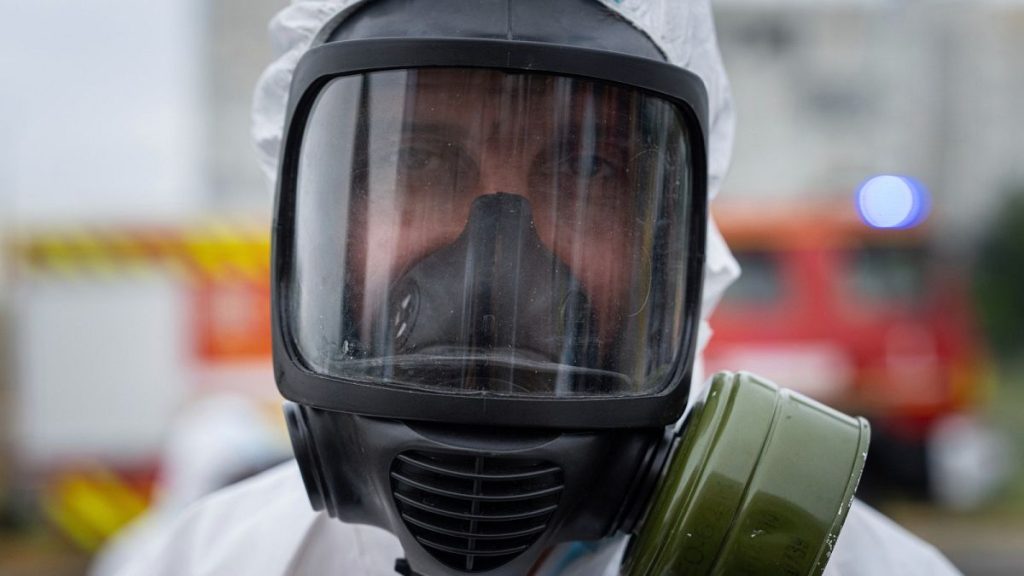The Zaporizhzhia nuclear power plant, located in eastern Ukraine and captured by Moscow during its 2022 invasion of Ukraine, has been the center of international concern due to frequent attacks and fires. A recent fire at the plant has sparked fears of a potential disaster, with both Kyiv and Moscow blaming each other for the incident. While some previous strikes on the plant have resulted in power outages, experts believe that the chances of a Chernobyl-type explosion at the plant today are essentially zero due to advancements in reactor safety standards.
The Zaporizhzhia plant, which houses pressurized water reactors, is built to a different standard than the graphite-filled reactors at Chernobyl. In the event of a blackout, electricity supply can be diverted from other sources and diesel generators can be used, limiting the risk of dangerous power outages. Additionally, all reactors at the plant are currently shutdown, reducing the risk of a catastrophic event. Despite the takeover by Moscow, the plant’s personnel have largely remained in place, with experts highlighting their heroic efforts to keep the facility running under difficult circumstances.
Europe appears to be prepared for a potential nuclear disaster, with more than 150 reactors operating across the EU’s 27 member states. Each country has an agency for nuclear preparedness, even those without reactors. International organisations like the IAEA establish safety guidelines, with coordination across European countries facilitated by organisations like HERCA and EMSREG. In the event of a nuclear incident, response plans involve evacuation of areas within a certain radius, alerting the population through alarms and text messages, and distributing iodine tablets to block radiation absorption.
Preparation is key in responding to potential nuclear incidents, with authorities typically detecting issues before radiation leaks occur. In the event of a large radioactive release, citizens within a certain radius of the plant are advised to shelter indoors, follow information from authorities through media channels, and take necessary precautions like ingesting iodine tablets. Regular drills and training exercises help ensure that authorities know how to respond effectively to different scenarios. Overall, Europe’s nuclear safety measures seem to be robust, with a coordinated approach in place to handle any potential disasters that may arise.


